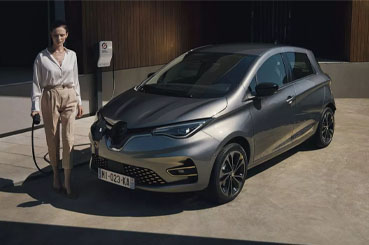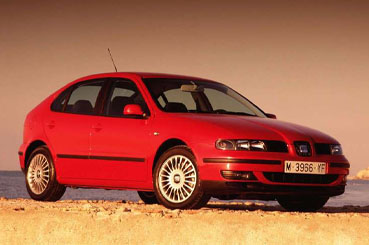What will reduce fuel consumption, and maximise EV range?
In a world where sustainability and cost-consciousness go hand in hand, the quest for greater fuel efficiency and extended electric vehicle (EV) range has taken centre stage.
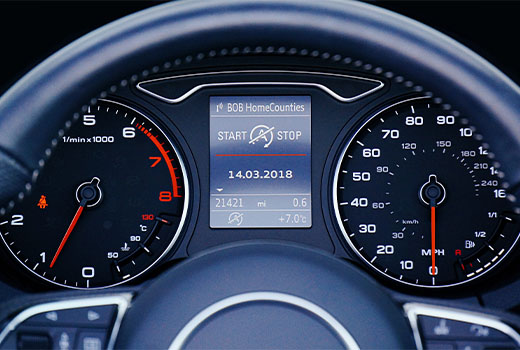
Whether you’re a traditional fuel-powered vehicle owner looking to cut down on trips to the pump or an EV enthusiast seeking to squeeze every last electron from your battery, the journey towards optimal efficiency is a shared one.
In this comprehensive guide, we delve into the art and science of reducing fuel consumption and maximising the range of electric vehicles. From smart driving habits to innovative strategies, we’ll explore the strategies that empower you to tread more lightly on the environment while saving on expenses.
Get ready to transform the way you drive and embrace a more eco-conscious and wallet-friendly future.
What’s most likely to increase fuel consumption?
Fuel consumption is a critical aspect of vehicle ownership that directly affects both our wallets and the environment.
Various factors contribute to how efficiently a vehicle uses fuel, and understanding these factors can help drivers make informed choices and adopt habits that promote fuel efficiency.
Below are some key factors that are most likely to increase fuel consumption:
1. Acceleration
Accelerating aggressively from a complete stop or while in motion can significantly increase fuel consumption. When you press the accelerator pedal hard, the engine has to burn more fuel to generate the power needed for rapid acceleration.
2. High RPM (Revolutions Per Minute)
Running the engine at high RPM for extended periods can lead to increased fuel consumption. High RPMs often occur when driving at high speeds or while climbing steep hills.
3. Excess Weight
Carrying excess weight in your vehicle, such as unnecessary luggage or equipment, can lead to higher fuel consumption. The engine has to work harder to move the additional weight, consuming more fuel in the process.
4. Lack of Maintenance
Neglecting regular vehicle maintenance can lead to decreased fuel efficiency. Issues such as dirty air filters, clogged fuel injectors, and worn-out spark plugs can disrupt the combustion process and cause the engine to consume more fuel.
5. Air Conditioning Use
Using the air conditioning (AC) system excessively can put a strain on the engine and lead to higher fuel consumption. AC systems use energy from the engine to cool the cabin, which in turn requires more fuel.
6. Incorrect Tyre Pressure
Underinflated or overinflated tyres can lead to increased rolling resistance, requiring more effort from the engine to move the vehicle. This results in higher fuel consumption.
7. Cruise Control
While cruise control can be beneficial for maintaining a consistent speed on long journeys, using it on hilly terrain or in stop-and-go traffic can lead to inefficient fuel consumption.
Cruise control may not adapt as well as a human driver to changes in road conditions, leading to unnecessary acceleration and deceleration.
What affects an EV’s range?
Electric vehicles (EVs) have revolutionised the automotive industry with their eco-friendly and efficient technology. However, like their conventional counterparts, EVs are also subject to various factors that can influence their range.
While some factors mirror those affecting traditional vehicles, there are unique considerations that impact an EV’s range:
1. Driving Speed
Just like traditional vehicles, driving speed has a direct impact on an EV’s range. EVs are most efficient in stop-and-start city driving, where braking regeneration can convert kinetic energy into stored electricity.
However, at higher speeds on motorways, the range decreases due to increased energy consumption. The aerodynamic drag and higher power demand at higher speeds are the primary reasons for reduced efficiency during motorway driving.
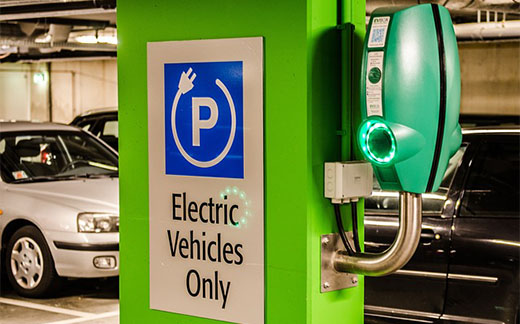
2. Weather
Weather conditions, particularly cold temperatures, can significantly affect an EV’s range. Cold weather reduces the efficiency of the battery by impacting its ability to hold a full charge.
When the temperature drops, the chemical reactions within the battery slow down, causing a decrease in available energy. This phenomenon can lead to a noticeable reduction in range during winter months.
3. Battery Age
The age of an EV’s battery plays a crucial role in its overall range. Over time, all types of batteries, including those powering EVs, lose their maximum charge potential. However, the degradation of EV batteries is relatively slow.
On average, an EV battery may lose about 2.3% of its capacity per year. While this decline is gradual, it can still contribute to a decrease in range over the vehicle’s lifespan.
4. Terrain and Elevation
The terrain on which an EV is driven can impact its range as well. Uphill driving requires more energy to overcome gravity, leading to decreased efficiency.
Similarly, downhill driving allows for regenerative braking, which can contribute to a slight increase in range. Elevation changes in the driving route can also affect an EV’s efficiency.
What will reduce fuel consumption?
1. Drive Smoothly
Anticipating what’s ahead on the road and adjusting your driving style accordingly can have a substantial impact on fuel consumption.
Smooth acceleration and braking minimise the energy wasted during abrupt speed changes. By maintaining a steady speed and avoiding sudden movements, you can significantly improve fuel efficiency.
2. Change Gears Earlier
In vehicles with manual transmissions, changing gears at lower RPMs can lead to better fuel economy. As a general rule, consider shifting gears around 2,000 RPM to keep the engine operating within its optimal efficiency range. This practice reduces strain on the engine and decreases fuel consumption.
3. Remove Unnecessary Weight
Excess weight in your vehicle can lead to higher fuel consumption. Before embarking on any journey, especially longer ones, remove items from the cabin and trunk that you won’t need. Less weight means less effort required from the engine to move the vehicle, resulting in improved fuel efficiency.
4. Regular Servicing & Maintenance
Adhering to your vehicle’s maintenance schedule is crucial for optimal performance and fuel efficiency. Regular servicing and MOT checks identify potential issues before they escalate, saving you money and preventing decreased fuel economy due to mechanical problems.
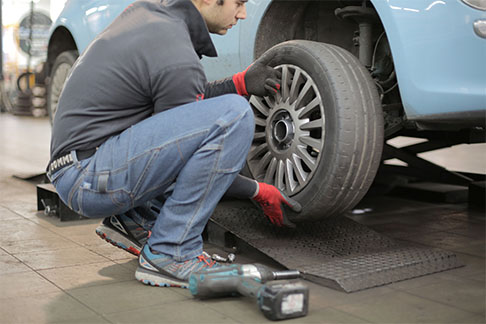
5. Reduced Air Conditioning Use
Air conditioning can significantly impact fuel consumption. Use the air conditioning sparingly and avoid turning it on until the engine has reached its operating temperature. On milder days, consider using natural ventilation by opening windows, as this consumes less fuel compared to running the AC.
6. Maintain Correct Tyre Pressures
Incorrect tyre pressures can lead to increased rolling resistance, making the engine work harder and consuming more fuel. Regularly check and maintain your tyres at the recommended pressure levels to reduce unnecessary drag and improve fuel efficiency.
7. Use Cruise Control Wisely
Cruise control can aid fuel efficiency on flat roads during long journeys. However, avoid using it on hilly terrain or in situations where you need to frequently adjust your speed. Maintaining a consistent speed on suitable roads can help optimise fuel consumption.
8. Optimise Trip Lengths
Frequent short trips, especially in cold engines, can lead to higher fuel consumption. Whenever possible, combine multiple trips into one longer journey to minimise warm-up periods. Planning your routes efficiently reduces unnecessary starts and stops, enhancing fuel efficiency.
How can I maximise an EV’s range?
Maximising an EV range will not only save money but also enhance the overall driving experience. By adopting specific practices and leveraging the unique features of EVs, you can make the most out of every charge and extend the distance you can travel.
Here are some effective strategies to help you maximise your EV range:
1. Choose Town Driving
When possible, opt for town driving over motorway travel. In city environments, stop-and-go traffic allows you to take full advantage of regenerative braking. Regen converts kinetic energy back into stored energy, recharging the battery every time you decelerate. Urban roads provide more opportunities for regen, thus increasing your EV range.
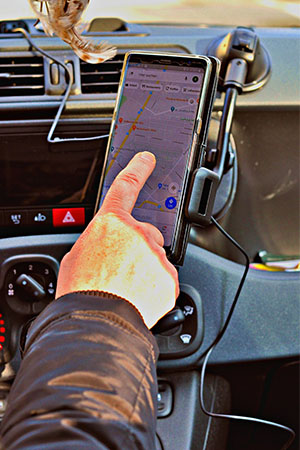
2. Cold Weather Considerations
Cold weather can impact an EV’s battery efficiency and reduce its range. If your schedule permits, try to avoid driving on particularly cold days when unnecessary. Alternatively, plan your trips during warmer parts of the day when the battery may perform better due to improved temperature conditions.
3. Preconditioning
Preconditioning is a technique that involves heating or cooling the cabin of your EV while it’s still plugged in and charging. This process minimises the energy required to adjust the cabin temperature while driving.
By pre-conditioning your EV’s interior during charging, you can start your journey with a comfortable cabin temperature and potentially save range.
4. Leverage Regenerative Braking
Regenerative braking is a hallmark feature of EVs that can significantly extend their range. Whenever you anticipate a need to slow down or stop, lift your foot off the accelerator pedal to engage regen.
Many EVs offer adjustable regen settings that allow you to maximise the braking effect. This practice converts the kinetic energy of deceleration into stored energy, which can then be used to power the vehicle.
5. Opt for Efficient Routes to Increase EV Range
Plan your routes to minimise elevation changes and avoid hilly terrain whenever possible. Uphill driving requires more energy, while downhill stretches can contribute to regenerative braking.
Using GPS navigation apps that consider elevation changes can help you find the most efficient routes for your EV.
6. Smooth Driving Habits
Just as with traditional vehicles, smooth driving habits play a crucial role in maximising an EV’s range. Gradual acceleration and braking reduce energy consumption and contribute to efficient driving. Avoid aggressive manoeuvres that lead to sudden energy expenditure.
Blog Comments
To view, comment or reply to comments you must be logged into facebook

